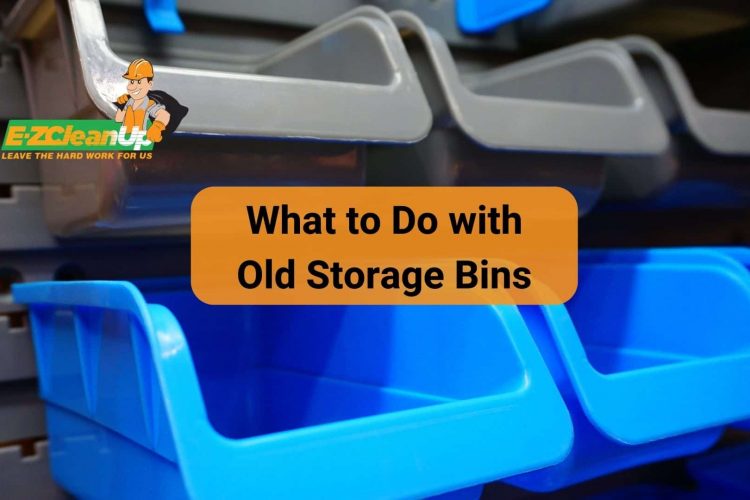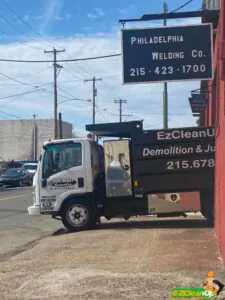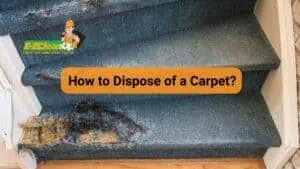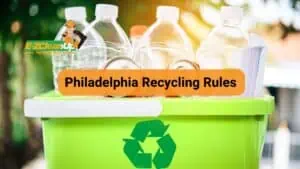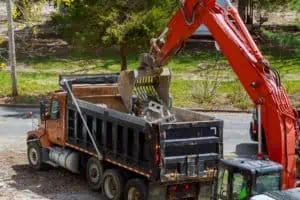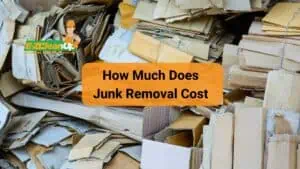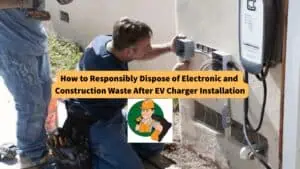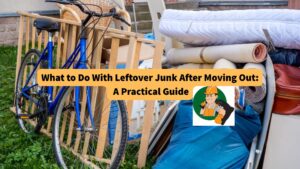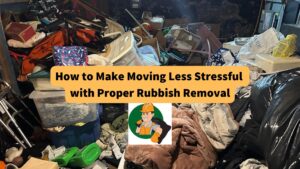Explore eco-friendly solutions for old storage bins by repurposing them as garden planters or home organizers, or recycle according to local guidelines. This approach reduces landfill waste and supports sustainability. For guidance, consult local recycling resources.
Want to know more about what to do with old storage bins? Read our guide.
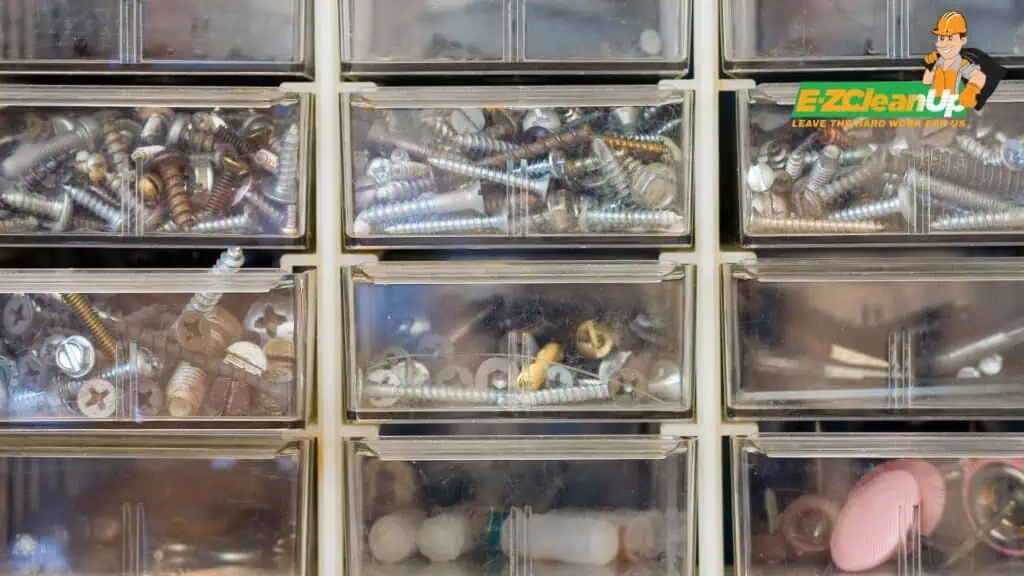
Repurposing and Recycling Old Storage Bins
Eco-friendly practices like recycling and repurposing help conserve natural resources. By finding new uses for old items or breaking them down to create something new, we reduce the demand for raw materials.
Moreover, there is the issue of landfills. More than eyesores, they are a source of pollution and greenhouse gas emissions. By diverting waste from landfills through repurposing and recycling, we contribute to a reduction in pollution.
Understanding the difference between repurposing and recycling is key to effectively managing waste. Here’s a breakdown of each process:
Repurposing or upcycling involves giving old items a new life without fundamentally changing their structure. It’s about creative reuse. On the other hand, recycling involves breaking down used materials to create new products. It’s like giving closure to the loop on waste.
How to Repurpose Old Storage Bins
From turning them into charming garden planters to utilizing them for innovative home organization, the possibilities are endless. Let’s explore some practical ways to give these old bins a new lease on life.
Transforming Bins into Garden Planters
Here’s a step-by-step guide to make this transformation happen:
- Select Your Bins: Opt for durable bins capable of withstanding the elements. Both plastic and wooden bins are excellent choices. Ensure they have or can have drainage holes added at the bottom for water flow.
- Prepare the Bins: Thoroughly clean the bins to eliminate any debris or residues. For clear bins, applying a coat of weather-resistant paint can add a splash of color and protect the plants from excessive sunlight.
- Plant Your Greenery: Fill the bins with a suitable potting mix. Choose a variety of plants, such as herbs, flowers, or vegetables, to suit your space and preferences. Position the bins strategically in your garden, patio, or even inside on a sunny windowsill.
- Arrange Creatively: Experiment with stacking bins to create multi-level planters. Consider mounting them on walls or fences to save space and add vertical interest. Use bins of different sizes and colors to create a visually engaging arrangement.
Creative Uses in Home Organization
Old storage bins can be remarkably versatile in organizing your home. Here are several innovative ways to repurpose them:
- Bookcases: Assemble bins in horizontal or vertical stacks to form simple, effective bookcases. Play with arrangements, like a staggered layout, for a more dynamic and visually appealing setup. Use labels to categorize books, making them easy to find.
- Pen Holders and Desk Organizers: Smaller bins can be perfect for keeping your desk tidy, holding pens, pencils, and other stationery. They’re also great for sorting and storing art and craft materials, keeping everything within easy reach.
- Toy Storage: Utilize bins in children’s rooms to organize toys, plush animals, or Lego blocks. Employ labels with pictures or words to simplify cleanup and teach organizational skills.
- Closet Organization: Bins are ideal for storing seldom-used items like scarves, belts, or seasonal accessories. They can be neatly placed under the bed or on closet shelves to maximize space.
Office and Workspace Organization Hacks
Enhance your productivity and workspace aesthetic with these organization hacks using old bins. Incorporate these strategies for a tidy office:
- Shelved Baskets: Place labeled baskets on shelves for organized storage of larger office items.
- Daily Planner Utilization: Keep a planner in a dedicated bin to manage tasks and deadlines effectively.
- Chalkboard Labels: Use chalkboard labels on bins for a uniform, easily changeable organization system.
- Clear Storage Solutions: Transparent bins help in quickly identifying contents, which makes them ideal for supplies and documents.
Recycling Plastic Storage Bins
These bins are not always accepted in standard curbside recycling programs due to their size and the type of plastic used. However, with the right knowledge and resources, recycling these items can contribute significantly to reducing waste.
Understanding which plastics can be recycled is the first step towards responsible disposal. Here’s how to identify recyclable materials in storage bins:
- Check for Recycling Symbols: Look for the recycling symbol on the bottom of the bin, which includes a number within the arrows. This number indicates the type of plastic. Common recyclable plastics in bins include PET (1), HDPE (2), and PP (5).
- Research Local Recycling Guidelines: Recycling rules vary by location, so it’s crucial to check with your local waste management authorities. Some plastics may not be accepted in your area’s curbside recycling, but could be recyclable at specific facilities.
Steps to Recycle Plastic Storage Bins Properly
Proper preparation and knowledge of local guidelines are key to recycling plastic storage bins effectively:
- Clean and Dry the Bins: Ensure the bins are empty, clean, and dry before recycling to avoid contamination. Contaminated bins can interfere with the recycling process and may lead to the rejection of recyclable materials.
- Disassemble the Bins: Remove any non-plastic components, such as metal handles or fabric liners, as these can’t be processed with plastics. If the bin has a lid, check if it needs to be recycled separately.
- Check Local Recycling Services: Some areas might have specific drop-off locations for large plastics or special recycling programs. If curbside recycling is not an option, look for alternative facilities that accept these items.
Finding Local Recycling Centers and Their Requirements
Finding a recycling center that accepts plastic storage bins may require some research:
- Use Online Directories: Websites like Earth911 or Recycle Nation offer search tools to find recycling centers based on material type and location. These resources can help you locate facilities that accept the specific type of plastic your storage bins are made of.
- Contact Local Waste Management: Reach out to your municipal waste management department for information on recycling large plastics. They can provide details on recycling programs, drop-off centers, or special collection days for bulky items.
- Consider Community Solutions: Sometimes, local community centers, schools, or non-profits may accept donations of usable bins for storage or projects. Donating is a form of recycling that extends the life of the item while serving a good cause.
Buying Eco-Friendly Storage Solutions
From bins made of recycled materials to alternatives that avoid plastic altogether, there are numerous ways to make sustainable choices.
Choosing Storage Bins Made of Recycled Plastic
Selecting storage bins made from recycled plastic is a step in the right direction for those looking to minimize their environmental footprint. Here’s why they make a great choice:
- Supports Recycling Efforts: By choosing products made from recycled plastic, you support the market for recycled materials, which encourage more recycling and less waste.
- Saves Resources: Manufacturing products from recycled materials generally uses less energy and conserves natural resources compared to producing new plastic.
- Reduces Landfill Waste: Utilizing recycled plastic for storage bins helps keep plastic out of landfills and the ocean and reduce environmental pollution.
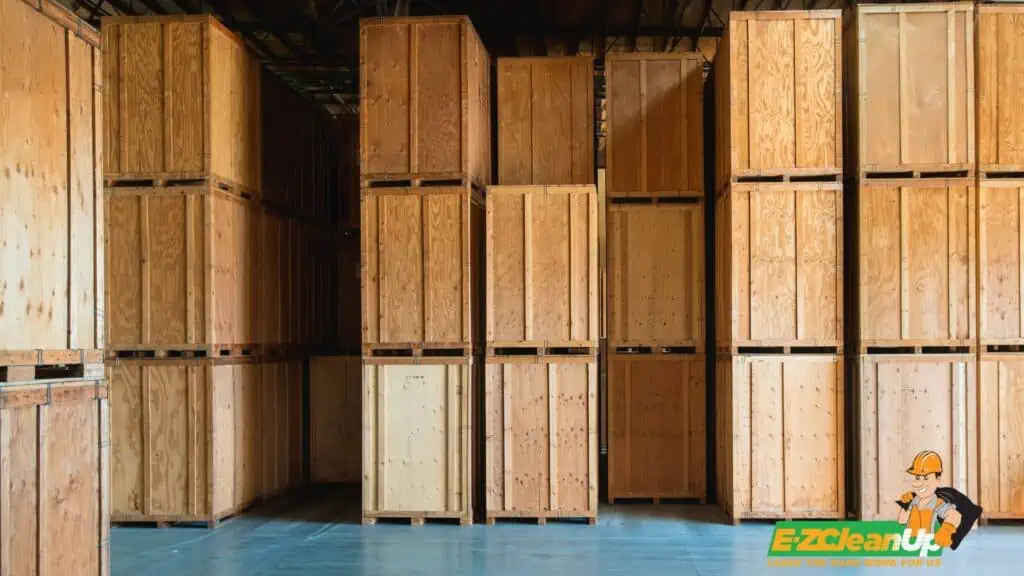
Alternatives to Plastic Storage Bins
Exploring alternatives to plastic storage bins can lead to more sustainable and aesthetically pleasing organizing solutions. Here are some materials to consider:
- Bamboo and Wood: Renewable and biodegradable, bamboo and wood are excellent materials for durable and attractive storage options.
- Fabric Bins: Made from natural fibers like cotton or hemp, fabric bins are collapsible, washable, and versatile for various storage needs.
- Metal Containers: Durable and recyclable, metal storage options offer a long lifespan and can often be recycled at the end of their use.
- Glass Jars: Ideal for smaller items, glass jars are perfect for organizing and displaying items sustainably.
Tips for Sustainable Purchasing Practices
Adopting sustainable purchasing practices when shopping for storage solutions is vital for reducing our ecological impact. Consider the following tips:
- Evaluate Need vs. Want: Before purchasing, consider if you truly need the item or if you can repurpose something you already own.
- Research the Product Lifecycle: Understand the materials used, the manufacturing process, and the end-of-life disposal options for the products you buy.
- Support Ethical Brands: Choose to buy from companies that are transparent about their sustainability efforts and support environmental initiatives.
- Consider Durability and Versatility: Opt for storage solutions that are durable and adaptable to various uses, which will reduce the need for future purchases.
Tips for Reducing Plastic Waste at Home
Reducing plastic waste at home is a crucial step towards a more sustainable lifestyle. By making conscious choices about the items we use daily, we can significantly lower our environmental impact.
Adopting a Minimalist Approach to Storage
Embracing minimalism in storage means reducing the overall need for plastic containers. Here’s how to get started:
- Declutter Regularly: Periodically review your belongings to keep only what you need. This will reduce the demand for storage solutions.
- Choose Multi-Functional Furniture: Opt for furniture that doubles as storage space, which can help limit the need for additional plastic storage bins.
- Digitalize What You Can: Reduce the need for physical storage by digitizing documents, photos, and other items that take up space.
Reusing Containers for Multiple Purposes
Reusing plastic containers can extend their life and prevent them from ending up in landfills. Here are some creative ways to reuse them:
- Food Storage: Clean old containers to store leftovers or bulk food items. This will reduce the need for single-use plastic wrap or bags.
- Organize Small Items: Use containers to organize small household items like screws, buttons, or craft supplies to keep them tidy and accessible.
- Planters: Convert containers into planters for herbs or small plants, which can add a green touch to your home.
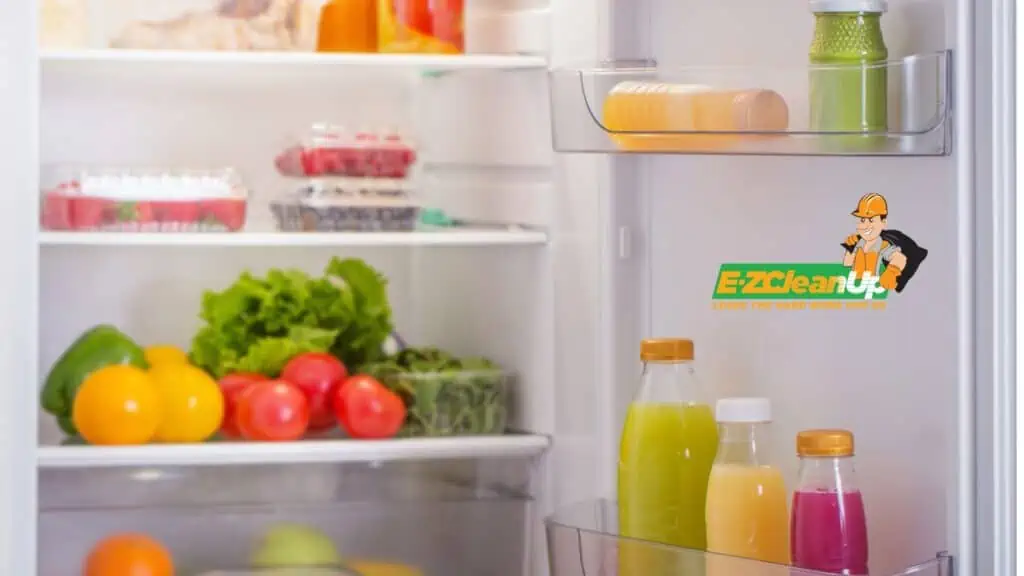
Supporting Brands and Products that Prioritize Sustainability
Choosing products from brands that focus on sustainability is key to reducing plastic waste. Here’s what to look for:
- Eco-friendly Materials: Support brands that use recycled, biodegradable, or renewable materials in their products.
- Minimal Packaging: Choose products with minimal or no plastic packaging, or packaging that’s easily recyclable.
- Transparency and Ethics: Support brands that are transparent about their manufacturing processes and prioritize ethical practices.
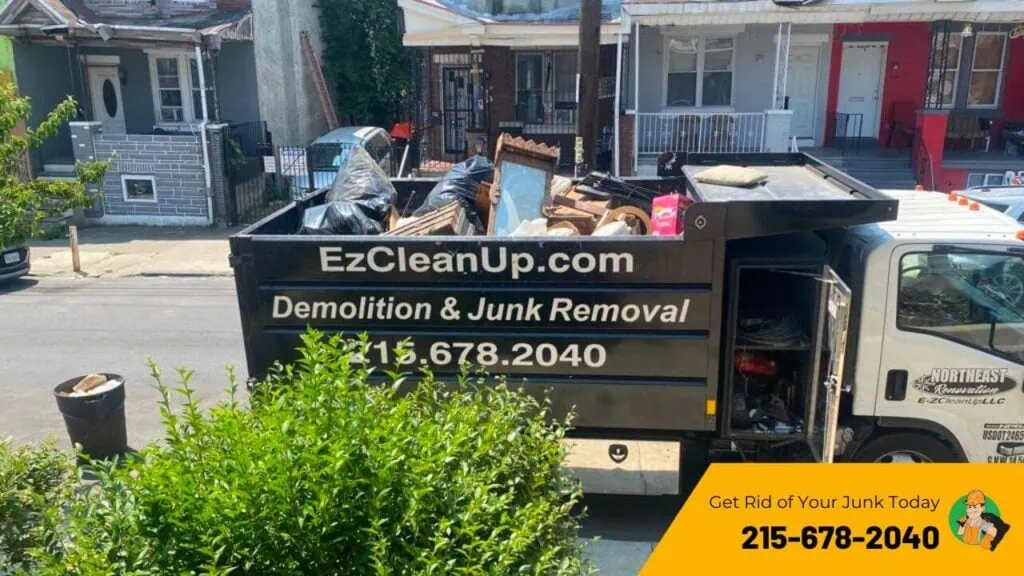
Embrace Eco-Friendly Disposal
Choosing responsible methods for disposing of old storage bins is more than a convenience—it’s a commitment to sustainability. Let’s innovate in our approach to what we consider waste and transform it into something beneficial.
Struggling to find a solution for your old storage bins? EZ CleanUp is here to help. Based in Philadelphia, we specialize in the eco-friendly disposal of items, including storage bins. Reach out to us, and let’s make responsible disposal easy together.

